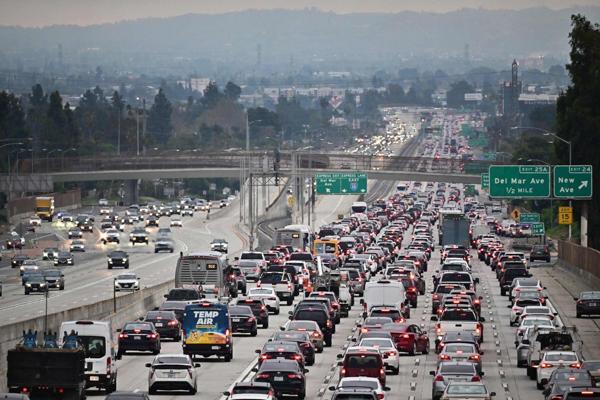US transition to electric vehicles faces delays
NEW YORK


The U.S. transition to electric cars has hit a speed bump, with concerns about vehicle range and limited charging capacity adding to core affordability issues.
Automakers in recent weeks have pushed back EV sales targets and delayed capital projects as they seek to reduce inventories of unsold EVs at dealerships.
"The slowdown in EV sales is much more pronounced than it is for other categories of vehicles and that isn't related to the economy," said Neil Saunders, managing director of GlobalData.
"The EV has a problem attached to it," he said. "It's a much more difficult and complex purchase because of the range of the vehicles and the charging infrastructure."
American consumers are accustomed to often-lengthy road trips for holidays or to visit friends and relatives, owing to the country's large size and limited public transit options.
But so far, the network of EV charging stations remains dodgy, with many areas either lacking infrastructure or equipped with unreliable machines.
More than three-quarters of drivers consider EVs reliable, according to a survey by the Consumer Technology Association (CTA), the organizer of the annual Consumer Electronics Show in Las Vegas.
But there are also significant doubts among drivers surrounding the autos over inadequate charging infrastructure (36 percent), battery range (39 percent) and vehicle affordability (38 percent).
The average EV sold in October for $51,762, some $13,000 below the year-ago level for the autos, but almost $4,000 above the average price of all autos.
Industry leaders such as Tesla Chief Executive Elon Musk have also pointed to increased borrowing costs as a drag after a series of Federal Reserve interest rate hikes over the last year and a half.
Tesla remains a dominant player in EVs, accounting for more than 55 percent of the 873,000 EV autos sold in the first 10 months of 2023.
Ford Chief Executive Jim Farley predicted "some bumpiness" in the evolving U.S. market.
"The dynamic changes in the market - pricing, adoption rates, regulations - are forcing us to further reduce the cost of our EVs," Farley said last month.
"What concerns us most is that automakers haven't cracked the economics to make an easy, affordable EV," saif Deutsche Bank analyst Emmanuel Rosner.
The Biden administration wants 50 percent of vehicles sales to be electric by 2030.
"The politicians wanted it to happen overnight, but you can't just set arbitrary targets, you've got to make sure the infrastructure's there," said Saunders
"The long-term trajectory is probably good for EVs," but "it's something that's much slower-going," he predicted.
